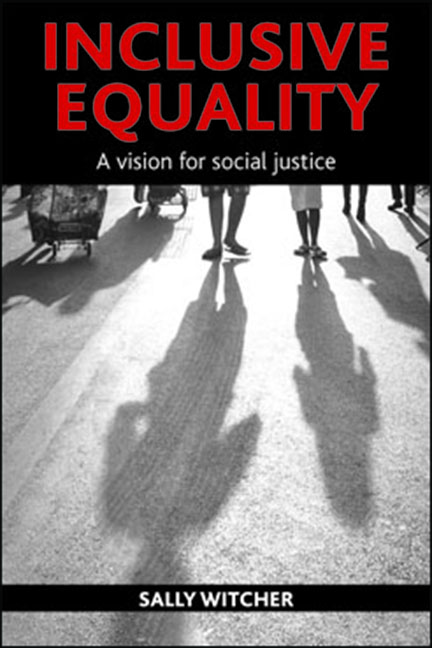four - Discrimination
Published online by Cambridge University Press: 03 February 2022
Summary
Defining discrimination
What exactly is discrimination? Its specific role in generating disadvantage requires clarification: ‘it is essential to distinguish discrimination from the larger phenomenon of disadvantage, as this can be seen in patterns of gender and racial inequality. These patterns are the products of a great variety of causes, of which discrimination is but one’ (Banton, 1994, p 19). This general point does, of course, apply to patterns of inequality pertaining to other groups as well. Moreover, if patterns of inequality are the outcome, it implies that it is necessary to explore where discrimination intervenes in the processes that give rise to them.
In this chapter we move on from exploring how to define ‘what’ is needed for inclusion to questions about ‘who’; how identity is defined and its implications for inclusion. In Chapter Two it was proposed that the purpose of the distribution, closely linked to the social meaning of the good to be distributed, should be reflected in the criteria for assessing who should receive it. It would follow that how identity is constructed, conveyed and understood, must be of critical importance to achieving socially just distribution. Further implications flow from recognising the identity of prospective recipients, including an appreciation of their needs and what would (and would not) meet them, of different ways in which criteria could be met, and how to conduct the process so that it is accessible to them and promotes their engagement (assuming the overall goal is for inclusion). However, there are many reasons why identity might not be accurately recognised and, consequently, why the treatment that a person, or group of people, receives can be unjustifiably inequitable.
Discussion in Chapter Three indicated that there were some situations where the possession of any amount or type of resources would make no difference to exclusion. It was also apparent that poor people experience disadvantage beyond the practical consequences of insufficient resources, such as lack of respect. Of course, this may reflect the narrow way status is conveyed in capitalist societies via the intangible qualities of goods and position in the production hierarchy.
- Type
- Chapter
- Information
- Inclusive EqualityA Vision for Social Justice, pp. 97 - 126Publisher: Bristol University PressPrint publication year: 2013



